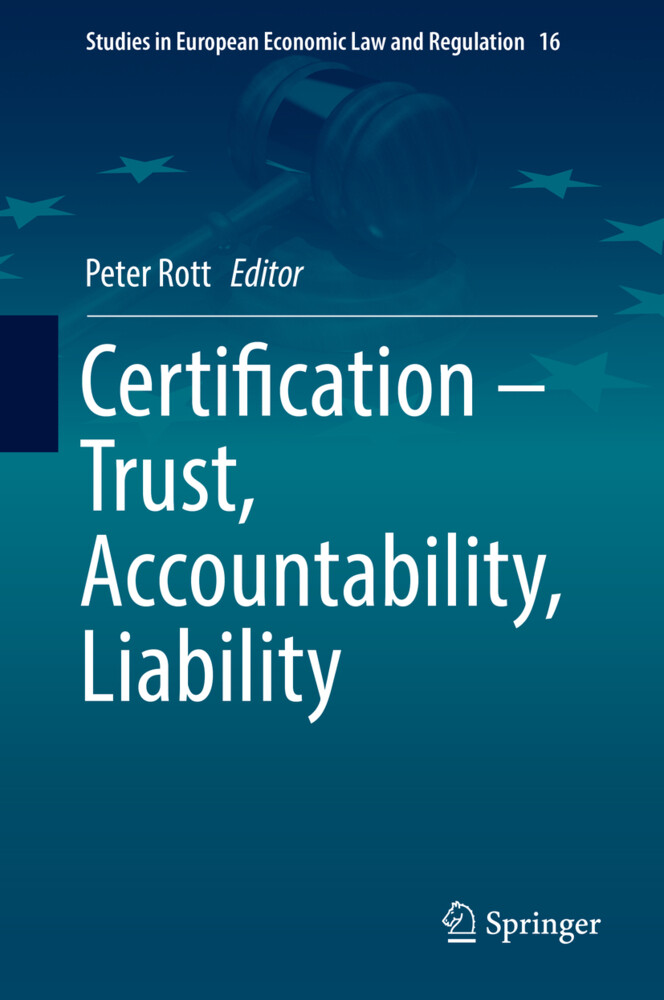
Zustellung: Mo, 25.11. - Do, 28.11.
Versand in 1-2 Wochen
VersandkostenfreiBestellen & in Filiale abholen:
This book offers an in-depth analysis of the function of certification in general and of certification systems in a range of different sectors.
The authors examine certification from both a theoretical and a practical standpoint and from the perspectives of different disciplines, including law, economics, management, and the social sciences. They also discuss instruments that help ensure the quality of certification, which can range from public law measures such as accreditation, to private law incentives, to deterrents, such as liability towards victims. Further, they assess the role of competition between certification bodies.
Readers will learn the commonalities as well as the necessary distinctions between certification bodies in various fields, which may stem from the different functions they serve. These similarities and differences may also be the result of different types of damage that the certified producer or service provider could potentially causeto individuals or to the public at large.
Often, companies use certification bodies as an argument to assure the general public, e.g. regarding the safety of medical products. Closer inspection reveals, however, that sometimes certification bodies themselves lack credibility. The book offers essential information on the benefits and pitfalls associated with certification.
Inhaltsverzeichnis
Georg von Wangenheim - Certification as solution to the asymmetric information problem?.- Victoria I Daskalova and Michiel A. Heldeweg Challenges for Responsible Certification in Institutional Context.- Richard Neerhof The use of conformity Assessment of Construction Products by the European Union and the Dutch Government.- Peter Rott Certification of medical devices.- Vibe Ulfbeck and Anders Mollmann, Public Function Liability of Classification Societies.- Gerrit Hornung and Stefan Bauer Privacy through Certification?.- Arne Lawrenz Certification in E-Commerce.- Miranda P.M. Meuwissen Can Certification Enhance the Feasibility of Insurance?.- Axel Halfmeier Liability of Rating Agencies under German and European Law.- Hanna Schebesta Control in the Label.- Carola Glinski Certification of the sustainability of biofuels in global supply chains.
Produktdetails
Erscheinungsdatum
21. März 2019
Sprache
englisch
Auflage
1st ed. 2019
Seitenanzahl
256
Reihe
Studies in European Economic Law and Regulation
Herausgegeben von
Peter Rott
Verlag/Hersteller
Produktart
gebunden
Abbildungen
VI, 250 p.
Gewicht
553 g
Größe (L/B/H)
241/160/20 mm
Sonstiges
HC runder Rücken kaschiert
ISBN
9783030024987
Entdecken Sie mehr
Bewertungen
0 Bewertungen
Es wurden noch keine Bewertungen abgegeben. Schreiben Sie die erste Bewertung zu "Certification Trust, Accountability, Liability" und helfen Sie damit anderen bei der Kaufentscheidung.









